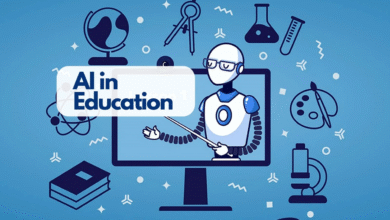
Are you tired of working from 9 to 5? Do you have aspirations of using cutting-edge AI to upend an industry? To become a tech titan, you don’t need a PhD in computer science.
Launching an AI startup without any prior experience may not seem very safe. It is, however, more attainable than at any other time in human history if you have the correct plan, resources, and attitude. With the correct strategy and resources, anyone can now identify a company niche, even without any prior expertise. Opportunities abound in AI for individuals who are prepared to think creatively, pick up new skills, and modify.
Our guide will walk you through the essential steps needed to realise the idea of your AI startup venture. Simple concept generation will be our first step before moving on to product launch. You can be a recent graduate, someone changing careers, or just an inventive person with a daring idea. Being the next great AI entrepreneur is possible with our guidance. Whether you’re a tech enthusiast or not, we’ll walk you through the process of creating an AI startup from the ground up.
Artificial intelligence is growing at an exponential rate, disrupting businesses and opening up hitherto uncharted territory for innovation. However, how can an inexperienced entrepreneur leverage cutting-edge AI technology to create a firm that will change the game?
Start Your Exciting Journey of AI Startup with These Steps:
1. Getting Ideas for Your AI Startup
Every profitable startup company begins with a strong concept. However, how can one generate one?
Thought-provoking is essential, but avoid becoming bogged down in a sea of options. Investigate domains where AI can address typical real-world issues first. This could entail conducting market research on sectors about which you are enthusiastic. You can begin examining market trends or finding weaknesses in solutions that are already in place.
Utilise resources such as ChatGPT to generate and hone your ideas. Even if AI is not ideal now, it can assist in gathering feedback and forecasting market potential. Furthermore, through competitor analysis, market data analysis, and customer demands analysis, platforms such as Yazero may help validate your ideas.
Related: AI Startup Boosts Workplace Diversity At Nike, Walmart, and Adidas
2. Finding a Co-Founder: Building a Strong Team
Don’t be a lone wolf—you don’t have to travel alone. Locating a co-founder with complementary abilities could aid in the expansion of your firm. Your co-founder will keep you motivated by taking on tasks you don’t enjoy or aren’t very good at.
AI-driven platforms such as CoFoundersLab are available for use. It can assist you in finding compatible business co-founders based on your objectives, background, and skill set. Furthermore, instruments such as Harver can assist in evaluating the strengths and compatibility of possible partners. That can assist you in assembling a cohesive team.
3. Front-end Development : Making Your Idea Real
Simplicity is crucial when choosing front-end development or user interface. This is particularly crucial for people who are new to web development. You must select frameworks and tools that you are acquainted with. Even if a given framework isn’t the newest fad, once you feel comfortable using it, stick with it.
Coding is not necessary to create functional web apps thanks to platforms like Bubble. However, there are AI-driven programs that can translate drawings into code, such as TeleportHQ. You may cut down on errors and save time by using these AI tools.
4. Backend Development: The Engine of Your AI Startup
The real magic happens on the backend, particularly for AI startups and enterprises. Selecting appropriate tools and platforms at the outset is crucial. Selecting a platform that offers performance, security, and scalability is essential. Data security, observability, and the capacity to manage intricate activities like large-scale AI models are all ensured by a robust backend.
FastAPI can be used to create effective APIs. Next, think about implementing it on cloud computing platforms with AI-powered scaling features, such as AWS or Google Cloud. Your environment may be kept constant between development and production with the help of tools like Docker.
5. Deployment: Making Your AI Product Accessible
Deployment is the last obstacle to overcome. Well done; you’ve come a long way. Although deployment may appear to be a difficult task, it can be simple with the appropriate strategy.
Your best option is to use one of the deployment platforms with AI capabilities, such as Vercel or Netlify. They can provide automated scalability and simple integrations with front-end frameworks.
Furthermore, if you want greater authority,. To maintain the seamless operation of your application, you should think about self-hosting with solutions like Hetzner and AI-powered monitoring tools like Prometheus.
Related: The Role of AI in Mobile App Development
Conclusion:
It’s possible to launch your first AI startup without any prior experience. With the correct AI tools and tactics, anyone can launch an AI startup. You can leverage the potential of artificial intelligence to launch a new company by using this advice. It’s entirely up to you to make your creative concept a reality. It is possible to create a startup that will endure and prosper in 2024 and beyond. Commence the process of learning, work with skilled people, and launch your AI startup right now.







